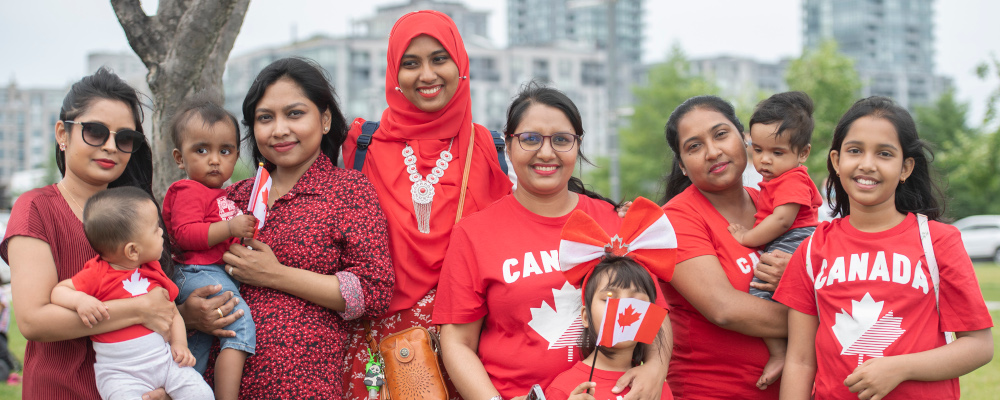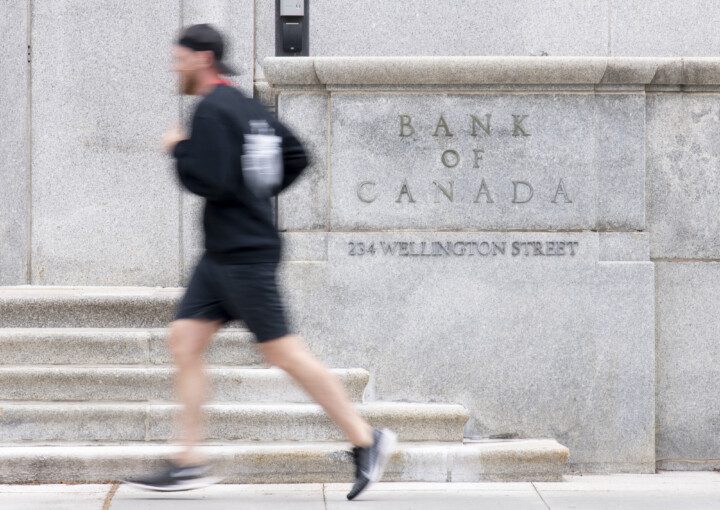Sometimes a seemingly small figure carries the weight of far-reaching, transformative power. As of 2020, 3.6 percent of the world’s population did not reside in their birth country. That is roughly 280 million individuals. This statistic encapsulates individual stories and struggles, but also the reshaping of nations and geo-political alliances as global migrations increase.
I belong to this 3.6 percent. There are many more who wish to join me. In 2021, 16 percent of the world’s population, roughly translating to nearly 900 million people, expressed the hope to leave their own country permanently if they could.
Our current debates about immigration to Canada are, so far, but a pale reflection of the broader global conversation that is increasingly marked by deepening hostility to immigrants. And we are not talking about Denmark, where attitudes towards Muslim immigrants have hardened, even under a female Social Democratic prime minister. Or read about the treatment of migrants in South Africa. In Germany, a former head of domestic intelligence recently said “Germany needed “chemotherapy” to treat the “cancer” of too many immigrants.

Globalization has done wonders for breaking down xenophobic boundaries at the same time as it provoked—what else?—a pulsating backlash that fuels the populist rage against visible change in their streetscapes.
Dislike of immigrants might manifest itself as being about race, jobs, or culture. But underneath, it’s about something more basic than that. It’s about xenophobia. One of our most basic instincts. We all have it, to different degrees. No one escapes xenophobia. (That’s what the hunt for “unconscious bias” is all about. There is nothing socially constructed about suspicion of strangers. The discrimination—and therefore bias—that comes with it is not the original sin, as wokeness would like us to believe).
But what we make of it, how we manage our xenophobic tendencies, that is the mark of our civility.
Here in Canada, with the promise of half a million new arrivals each year set against the backdrop of a strained housing market, the subject of immigration remains at the forefront of daily headlines and political debate.
And even though there has been broad political unanimity that has existed so far, it might be wise to consider that it could fray in the future. (Though to be fair, looking at Bernier’s PPC not finding much political traction among the most disgruntled shows how it is still off-putting to most Canadians to use openly anti-immigrant language.)
But that does not mean that in the future Canadians might continue to evade a more demanding discussion about integration of a growing number of immigrants. One of them is whether there could be a tipping point beyond the current 23 percent share of immigrants. After all, Sweden with a 20 percent share of immigrants can certainly be described as having moved beyond a tipping point. (Sweden’s gun crime death rate is now the second highest in Europe).
The first real hint of a tipping point was the recent series of demonstrations regarding the Hamas-Israel conflict. Even though the implicit deal with immigrants is that they leave their home politics behind, some of them have no intention of doing so. And whether it’s Muslims versus Jews, Ethiopians versus Eritreans, or Sikhs using Canada as a platform to wage their war with India, Canada is going to be increasingly tested on whether or not diversity is really our strength.
Through my journey from Poland through East Germany and Sweden, to ultimately planting my familial roots in Canada in 1973, I have been a witness to the gradual embrace of multiculturalism by English Canada. Its politics and culture have been profoundly affected by it. As a television producer, it was a subject that has held my ongoing attention for the last 43 years—especially as I personally embody this phenomenon; my immediate family traces its various roots to Poland, Sweden, Jamaica, Cuba, and Turkey. Not only do I think about it intellectually, but I live it.
I arrived in 1973 together with 184,200 other strangers that year and I encountered a country that did not speak with one voice in two languages, in which many of its inhabitants identified more with their province than with their country, and where hockey was God. It also had a prime minister who proclaimed a year earlier that “there is no such thing as a model or ideal Canadian.”
In this respect, Pierre Trudeau’s Canada was perfect for me. If there is someone who could not be offended by being called a rootless cosmopolitan, that would be me. I didn’t come to Canada to join a community. I came to Canada because of romantic entanglement and an abiding wish to leave Sweden. Not because I was looking for a better life. In this, I’m different from most of my fellow immigrants. My life by all objective criteria was plenty good. I was simply looking for a different life. So, Trudeau’s assurance that there was nothing to emulate was fine with me. I was good with the don’t-do-anything-illegal-and-pay-your-taxes category of Canadian patriotism.

But I do not think that this was an unalloyed good for Canada and for the immigrants who settled here. It certainly was good for not upsetting Quebec more than absolutely necessary. But it also contributed to an evisceration of Canadian political and cultural discourse about the future of “Canadian mosaic,” a phrase coined in 1938 but which has since gone out of academic and journalistic fashion after its heyday in the early ’70s. The same thing happened with “multiculturalism.” Neither phrase is intersectional enough. Both hint at an approximation of oneness or unity. It’s the same kind of thinking that leads the president of the Canadian Historical Association to happily proclaim in these pages that “Canada has no single national story—and that’s a good thing.”
Justin Trudeau reaffirmed his father’s legacy in an interview with New York Times Magazine in 2015 when he proclaimed that “there is no core identity, no mainstream in Canada,” and that “makes us the first post-national state.”
No roots and no history that coheres except, as of late, a history of colonialist oppression. A post-national state, going by our PM’s record, is one that is responsible for wishing to clean up after the crimes “the nation” has committed.
It takes a certain kind of immigrant to notice that Canada has a way of being inscrutable to outsiders. It took me something like five years of living in Toronto to begin to puzzle together the outlines of what drives Canadian politics. And I did not have a factory job and a family to support. Your average immigrant doesn’t have much time to reflect on the nature of their new country. Most people don’t. Either a country has a narrative to offer to its new citizens or it doesn’t. Having mostly abandoned pride in its historical roots, Canada is hoping for the future to simply reveal the answer to the question “Who are we?”—or if there is even going to be a “We.”
In the meantime, we must worry about housing for new immigrants. And we must hope for a time when more of us show interest in our national story, currently gathering dust in the basement, and the metaphysical and societal nourishment that might still be found there.
Recommended for You

Fred DeLorey: Why real Christmas trees matter more than ever

Ray Pennings: A good Christmas reminder for Canada’s leaders: Religion is a public good

Sean Speer: Canada needs to kickstart its cultural policy

Eric Lombardi: Dare to be great: Ten radical ideas to restore Canada’s promise in 2025



